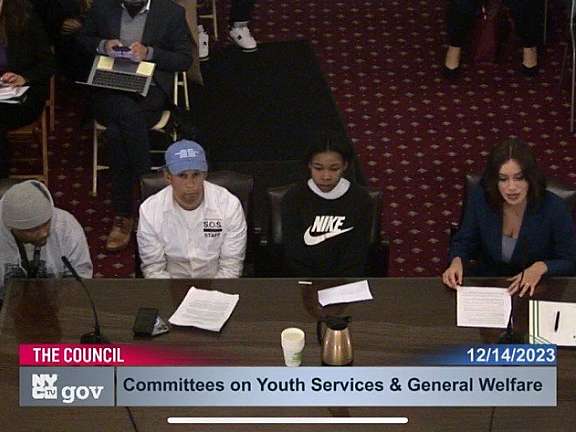The New York City Council Committees on General Welfare and Youth Services

Jacquelyn Shelton, Senior Attorney, Criminal Defense Practice Brooklyn Defender Services, presented before the New York City Council Committees on General Welfare and Youth Services Oversight Hearing on Preventative Services for At-Risk and Justice Involved Youth
Black and Brown Youth Are Disproportionately Impacted by NYS’s Juvenile Legal and Family Policing Systems
Black and brown communities bear the brunt of racist systems and policies. Youth from these communities often have contact with ACS and then are further traumatized by contact with the juvenile legal system. Findings released by the final Raise the Age Commission in 2020 found that in New York City nearly all youth prosecuted as adults in the youth parts in New York City’s criminal courts were Black and Latine.
---
Investments are Needed for Community Based Preventive Programming and Diversion Programs for Youth
The continuum of services in the juvenile legal system have largely been consolidated and are now operated entirely by ACS-from preventive services through placement and aftercare. Other city agencies, such as the Mayor’s Office on Criminal Justice (MOCJ) and the Department of Youth and Community Development (DYCD), that fund anti-community violence programs, actually work with children and their communities to help young people succeed and avoid legal system involvement. However, these programs often have long wait lists and there is pressure on the programs to move youth through their programming to open up space for additional youth.
Before a child has contact with the juvenile or criminal legal system, there are preventive services offered through the ACS’ Family Assessment Programs, community-based programs meant to keep young people from entering the legal system. But instead of actually assisting the needs of the family, the child and the family get wrapped up in the family policing system. For example, The Family Assessment Programs (FAP) provide parents with assistance filing Persons in Need of Supervision applications (PINS), but parents can statutorily only file a PINS case if there is a missing persons report or after they have tried a program through FAP and get an ACS case worker. Parents shouldn’t have to file legal actions against their own children to get assistance.
---
The family court model, and the work that New York has done to treat young people as the adolescents they are is incredibly important work. Holding young people accountable while recognizing that children are not smaller adults is crucial for more positive outcomes and greater public safety. Looking at behavior that actually needs to be addressed by the court system rather than community system is crucial. Keeping families together while providing individualized help that families are asking for, is the only way to truly keep communities safe.
